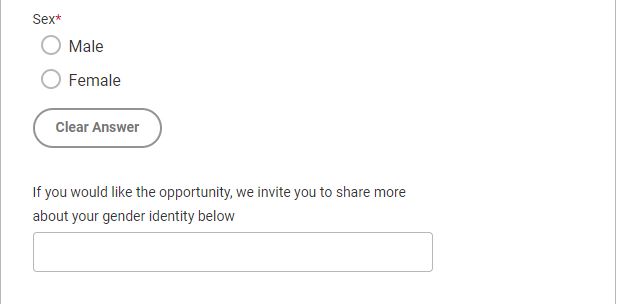When I’m recruiting for NYU, I often answer questions from LGBTQ+ high school students who want to know if it is OK to “come out” in their college applications. Understandably, some students worry that this decision could negatively impact the outcome of their application.
Coming out is a unique experience for every LGBTQ+ person who decides to do so. It can be stressful, exciting, anxiety-inducing, and joyful—all at the same time! Your college application is an opportunity to introduce yourself, and you have every right to be your full self in the application.
Fortunately, many universities, like NYU, affirm and celebrate LGBTQ+ applicants and students. However, make sure that you remember that the Common Application is, well, common! The information you fill out in the Common Application will be viewed by all the colleges you use it to apply to, including those that might not be as inclusive or LGBTQ+ friendly.
If you decide that you want to disclose your identities in your application, here are some tips to keep in mind when completing your college applications.
Do Your Research!
If a college campus is not supportive of the LGBTQ+ community and you’re looking for a supportive environment for your college experience, you may want to consider if that college should remain on your list. Once you can identify that a college is supportive of LGBTQ+ students, feel free to use your preferred name and pronouns and to disclose your identities throughout the application—if you want to!
Preferred Name, Gender Identity, and Legal Sex
If you are applying to a college that utilizes the Common Application, you will be able to apply with a preferred name in addition to your legal name. Keep in mind that colleges may use your preferred name for official communications—both via email and print. At NYU, we use your preferred name. The only exception is your offer of admission, which will have your legal name as it appears on official documents. Make sure that you’re comfortable with something being emailed or mailed home with your preferred name before you fill out this question. Otherwise, leave your preferred name blank.
You will also be able to apply with your gender identity in addition to your legal sex. The Common Application gives you the options of “male” and “female” and also allows you to “share more about your gender identity.” This is an opportunity to share your gender identity and pronouns.

Supporting Documents
If you feel safe and comfortable doing so, you can ask the people writing your letters of recommendation to use your preferred name and pronouns instead of your legal name. When it comes to your privacy, you can rest assured that anything you write about in your application or essay is protected by student privacy laws. The name, pronouns, or identities you disclose in your Common Application are private, only between you and NYU.
Documents submitted through the Common App, such as transcripts or letters of recommendation, will seamlessly be matched to your application record. If something is mailed or emailed separately, have the sender include your Common App ID or NYU ID number to help with matching—regardless of what name they use.
Test scores, such as the SAT or ACT, that come directly from the testing agency are sent under your legal name. Because you provide that on the Common Application, it’s easy to match.
College Essay
When it comes to the essay portion of the application, you can disclose your identity and pronouns, as long as it fits within the scope of the prompt. Think of your college essay as your first time meeting a new person, and the chance to make a good first impression. Make sure your essay has a positive message, and helps the reader learn more about you.
Students often choose to write about challenges or forms of adversity that they’ve dealt with. Just be sure that if you choose to write an essay about facing adversity, whether it is related to your identity or not, that you frame the topic positively. It’s OK to talk about a challenge or a form of adversity that you ran up against in your life, but make sure that the majority of the essay is about how you have overcome this challenge or how you have grown and matured due to the challenging experience or circumstance. It can be easy to write most of the essay about the challenge or the adverse circumstances. Remember to ask yourself: “What does this say about me, my strengths, my personal growth, and my abilities?” Your essay should help the reader of your application get to know your best self.
The college application process is a daunting and exciting time precisely because you have the opportunity to present your own narrative, your own identity, your own story! Remember that you deserve to be authentically known in your own college application process. Whether or not you’re in a position to safely and comfortably “come out” in your college applications, know that there are admissions counselors, college professors, and future peers who are rooting for you.
If you have any questions about gender diversity and LGBTQ+ life at NYU, feel free to contact the author directly at [email protected].



